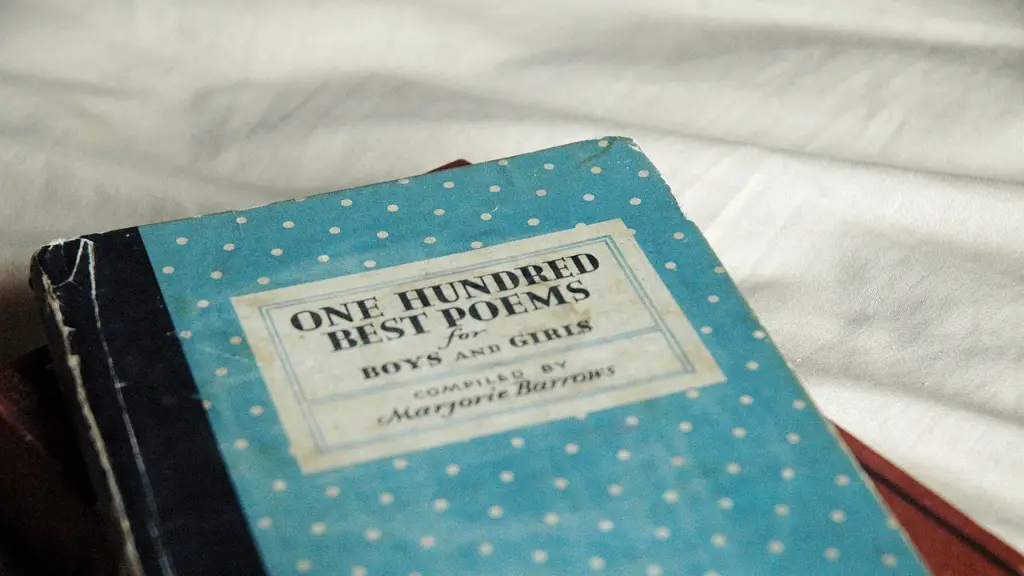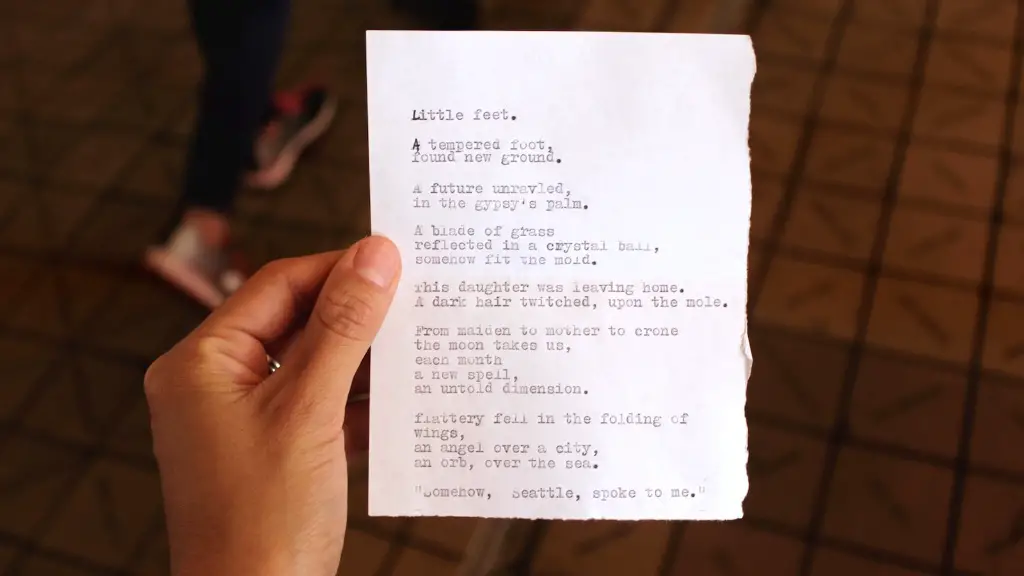Practicing
Memorizing poetry quickly requires practice. To begin practicing, start by selecting a poem that appeals to you. Select a poem with a relatively manageable size and difficulty. Once you have a poem, break it down into smaller portions. This could mean memorizing the poem one line or even one word at a time. Repetition is key. As you move through and read a particular section, remember to pay attention to rhyme and meter. Focusing on the rhythm of the poem can help with memorization.
It is always important to remember what works best for you. Different techniques can help with memorization, such as associating mental images with certain words and phrases, or linking sections of the poem with another piece of information. These techniques may help make the poem easier to remember. Additionally, do not be afraid to take breaks. Taking a few moments to regroup can help you to reset and look upon the poem with a fresh perspective when you return to it.
Receiving Guidance
When it comes to memorizing poetry quickly, seeking guidance or support can be beneficial. For example, if you have access to a tutor or mentor, it may be worth discussing the poem and which parts of it may be giving you difficulty. Additionally, a teacher or mentor may be able to provide advice or guidance about a memorization technique that works for them.
From experts’ perspectives, memorizing poetry quickly may need to come from an analysis of the content of the poem, rather than a straight memorization of it. Once you understand the poem, then you can start to memorize it more easily. Once you understand the poem more deeply and begin to analyze it, the structure of the poem and how the author is using it will become easier to remember. This can help create a more solid foundation for memorization.
Studying Structure
In order to memorize poetry quickly, it is important to understand the structure of the poem. This includes recognizing the importance of meter, rhyme, and even imagery. Pay close attention to how these elements are used within the poem, as this can also help with recollecting material. Memorizing the structure of the poem can help memorize the words and phrases as well.
It is also important to recognize and identify the different parts of poetry such as the poem’s structure, tone and other important aspects. When identifying the tone of the poem, consider whether or not the poem is emotional or if it is more factual. This can help you to identify emotional triggers that may help generate feelings to help with memorization.
Mental Stimulation
One of the most important things to remember when memorizing poetry quickly is to stimulate your mind. It’s important to find ways to challenge your brain and keep it interested. It may be useful to branch out and try different memorization techniques. A useful strategy might include looking up definitions of unfamiliar words and incorporating these with other memorization techniques. It is also important to avoid becoming bored by changing up the pace of memorization. Going through a poem more slowly followed by more rapid recitation can help engage your brain and make memorizing easier.
Consistent Repetition
When it comes to memorizing poetry quickly, consistent repetition is essential. Consistently repeating the poem a few times a day will help slowly commit it to memory. You can also recite a poem out loud if that creates a stronger memory. Additionally, depending on the poem, it may be beneficial to memorize it on the spot or take a few moments to memorize it and come back to it.
The key to memorizing poetry quickly is to understand the structure and context of a poem before trying to memorize it. Doing the research and understanding the poem beforehand may help the memorization process. Additionally, practicing and repetition are essential to ensuring the poem is remembered. Finally, engaging the mind and experimenting with different techniques may also be beneficial
Utilizing Technology
Technology can be used to help memorize poems quickly. For example, in the digital age, there are a variety of helpful apps that can be used to help memorize poetry. Writing and reading out loud on an audio file or recording a voice memo of yourself can be helpful. Having a copy of the poem on your phone or laptop can help to read and study it at your leisure or on the go. Technology can also help to create mnemonic devices that can be used to remember the poem.
Moreover, technology can also help with sight reading and testing techniques. Technology can provide virtual resources such as flashcards and quizzes to help practice and recall the poem. For example, websites like Quizlet can be used to create flashcards and testing templates specific to a particular poem. These resources can be used on the go and allow for more in-depth practice and study.
Making Connections
Memorizing poetry quickly relies heavily on creating associations between facts and concepts. Coming up with connections between familiar themes can help make the poem easier to remember. Additionally, making connections with other poems may help with memorization. Learning different styles and forms can help provide a greater understanding of poetry. If a poem is connecting to a previous poem, it might be easier to remember it.
Similarly, making connections with history or current events can also help with memorization. For example, connecting lines of the poem to examples of current or past events can help make the poem easier to remember. Additionally, connecting the poem to familiar concepts or stories may also help with memorization. Having various associations to which you can connect the poem can make the poem easier to recall.
Finding Motivation
Motivation is a crucial factor in the process of memorizing poetry quickly. Learning a poem will require dedication, practice and effort. For example, listening to the poem or finding recorded readings of it is a great way to get yourself motivated to learn. Additionally, finding someone else to work on memorizing a poem with you can also help with motivation. This could involve finding another person or working with a tutor; this person could help to hold you accountable, as well as provide ideas and assistance.
If finding someone to memorize a poem with you is proving difficult, setting yourself small goals or rewards can be beneficial. Keeping a positive mental attitude will be key to helping yourself stay motivated. Looking back on what you have accomplished can be very rewarding, and seeing the progress you have made will help to keep you motivated to finish memorizing the poem.


